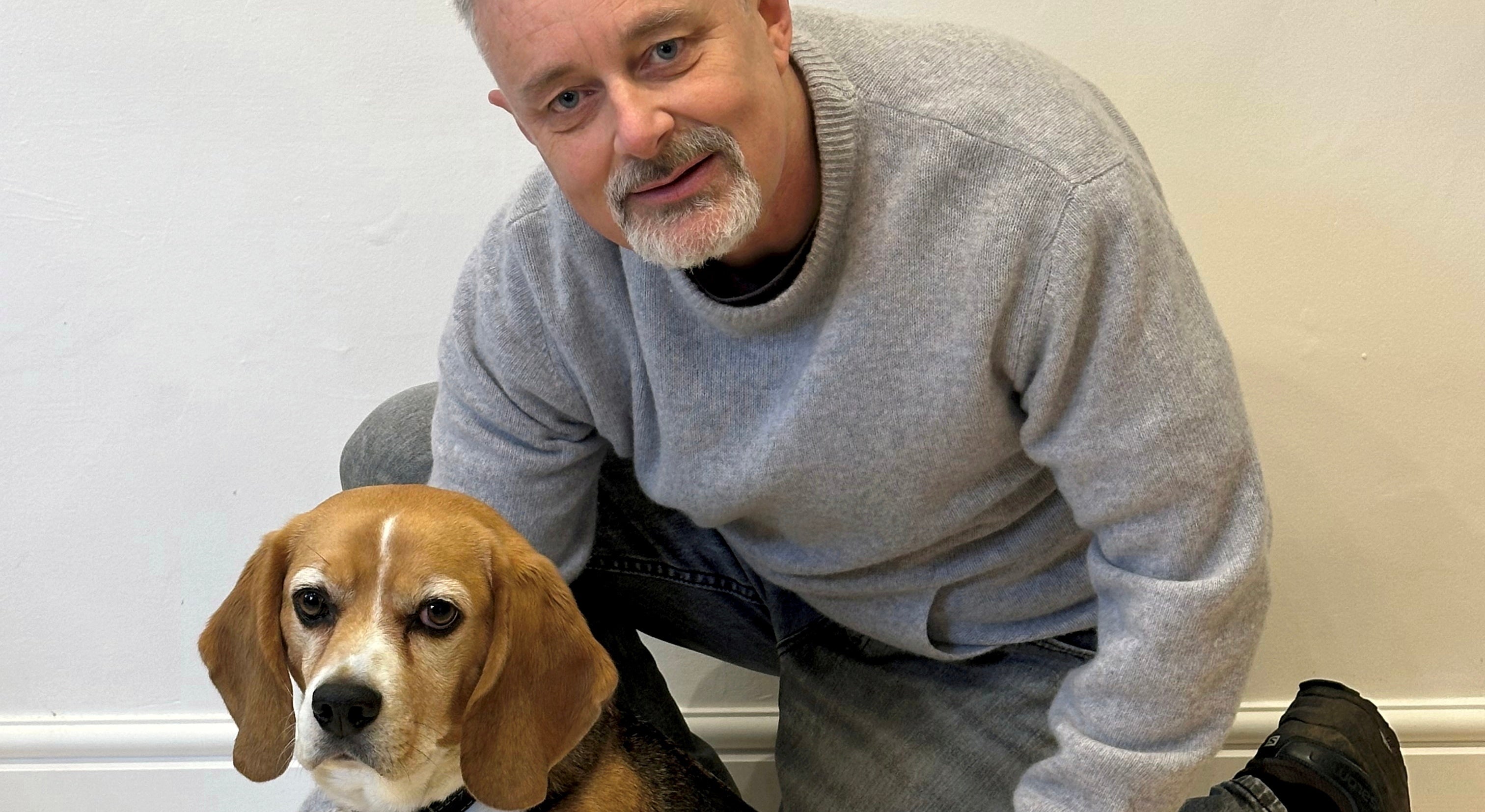Dog owner reveals how he avoided paying sky high British vet bills

A dog owner avoided paying thousands of pounds in sky high British vet bills by having his pooch treated abroad - for less than half the price.
Brian Flynn, 52, said a UK vet quoted him £5,318 for surgery and aftercare when Flash, his eight-year-old Beagle, suffered a leg injury during a holiday in France.
But he was left “gobsmacked” when he took the mutt to a local vet in the alpine town of Bourg-Saint-Maurice who said the same treatment would cost just £1,493.
It comes as a government watchdog launched an investigation into rising vet bills from a possible lack of competition between large chains in the sector.
Brian said Flash was thankfully on the mend after surgery that saw a metal bar inserted into his leg to mend an injury to a ligament in his leg.
But he worries customers are getting “ripped off” by huge fees at animal surgeries in the UK.

He said: “I was genuinely shocked at the huge difference between the prices charged by vets for the same operation and medication in the UK and France.
“It’s hard to see any justification. It feels like we’re being ripped off by vets in the UK by comparison to other countries.”
Brian was staying at his chalet in Bourg-Saint-Maurice on a skiing holiday in early February this year when Flash was injured hoping off a wall.
And when the media consultant, from Faversham, Kent, took him to a local vet, they found he had an ACL injury that would need surgery.
The dad of two phoned up his vet practice in the UK who informed him it would cost £4,700 for the surgery and £618 for follow-up x-rays and medication.
And he was also told that as the veterinary surgeon was away, the much-needed operation could not be carried out for a few weeks.
He then took Flash back to the practice in his local town where he was stunned to learn that they could carry out the treatment for significantly less money.
Brian said: “We spoke to our vet in France and we were quoted and I paid €1,747, which works out as £1493 for exactly the same.
“The surgery couldn’t wait, and we were absolutely gobsmacked by the difference, so we instead arranged to stay on in France for a few weeks longer for the surgery.
“When I told the vet in France, who carried out the operation, how much we had been quoted in the UK, he was absolutely shocked.
“He said ‘There’s no way that the operation should cost anything like that much – there’s no justification for charging that much.’ He could not believe it.”
Flash had his operation on February 13 and is now recovering at home, where he has recently been allowed to take some short walks as part of his rehabilitation.
But Brian said he would be taking him back to France soon to complete the final phase of his treatment.
He felt vet bills may have risen so steeply in the UK due to the widespread use of pet insurance, which meant owners were less aware of the pricing structures.
He added: “The only thing that I can put it down to is the fact that vets know that in the UK animals are going to be insured.
“Therefore, patients don’t care so much about the bill because they are not footing them.
“But I supposed indirectly they are because everyone is paying premiums on their insurers to pay for the costs.”

The Competition and Markets Authority (CMA) revealed today (Tues) they were launching a probe into the veterinary industry following concerns about rising bills.
Since 2013, 1,500 of the 5,000 UK vet practices have been acquired by the six large corporate groups - CVS, IVC, Linnaeus, Medivet, Pets at Home and VetPartners.
And the CMA said this consolidation in the sector may result in weak competition in some areas - leaving consumers nursing higher bills.
Sarah Cardell, Chief Executive of the CMA, said: “We have heard concerns from those working in the sector about the pressures they face, including acute staff shortages, and the impact this has on individual professionals.
“But our review has identified multiple concerns with the market that we think should be investigated further.
“These include pet owners finding it difficult to access basic information like price lists and prescription costs – and potentially overpaying for medicines.
“We are also concerned about weak competition in some areas, driven in part by sector consolidation, and the incentives for large corporate groups to act in ways which may reduce competition and choice.
“Given these strong indications of potential concern, it is time to put our work on a formal footing. We have provisionally decided to launch a market investigation because that’s the quickest route to enable us to take direct action, if needed.”
Join our commenting forum
Join thought-provoking conversations, follow other Independent readers and see their replies
Comments
Bookmark popover
Removed from bookmarks